Filter by
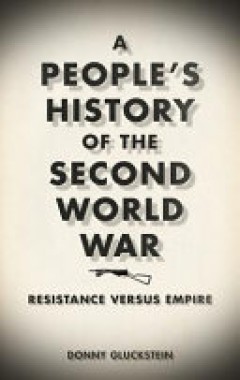
A people's history of the Second World War : resistance versus empire
A People's History of the Second World War unearths the fascinating history of the war as fought 'from below'. Until now, the vast majority of historical accounts have focussed on the conflict between the Allied and Axis powers for imperialist mastery. Donny Gluckstein shows that in fact between 1939 and 1945 two distinct wars were fought – one ‘from above’ and one ‘from below’. Using…
- Edition
- 1
- ISBN/ISSN
- 9780745328034
- Collation
- ix, 262p
- Series Title
- -
- Call Number
- 940.53 DON

Mongol Court Dress, Identity Formation, and Global Exchange
The Mongol period (1206-1368) marked a major turning point of exchange – culturally, politically, and artistically – across Eurasia. The wide-ranging international exchange that occurred during the Mongol period is most apparent visually through the inclusion of Mongol motifs in textile, paintings, ceramics, and metalwork, among other media. Eiren Shea investigates how a group of newly-conf…
- Edition
- -
- ISBN/ISSN
- 9781032238432
- Collation
- xvii,207 p
- Series Title
- -
- Call Number
- 391.00951 HEA M
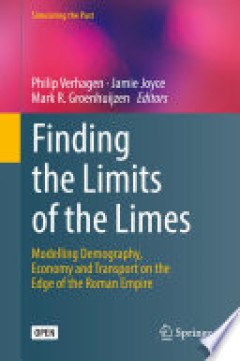
Finding the Limits of the Limes : Modelling Demography, Economy and Transport…
This open access book demonstrates the application of simulation modelling and network analysis techniques in the field of Roman studies. It summarizes and discusses the results of a 5-year research project carried out by the editors that aimed to apply spatial dynamical modelling to reconstruct and understand the socio-economic development of the Dutch part of the Roman frontier (limes) zone, …
- Edition
- -
- ISBN/ISSN
- 9783030045760
- Collation
- -
- Series Title
- -
- Call Number
- 936.4 ver
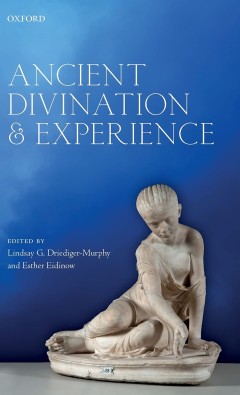
Ancient divination and experience
The introduction to this volume describes the contribution that it makes to scholarship on ancient divinatory practices. It analyses previous and current research, arguing that while this predominantly functionalist work reveals important socio-political dimensions of divination, it also runs the risk of obscuring from view the very people, ideologies, and experiences that scholars seek to unde…
- Edition
- -
- ISBN/ISSN
- 9780198844549
- Collation
- ix, 285p.
- Series Title
- -
- Call Number
- 203.2 ANC a
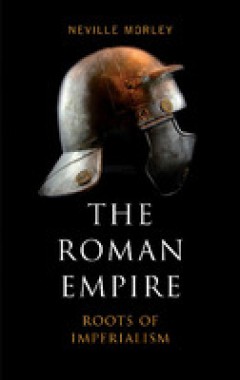
The Roman Empire; Roots Of Imperialism
A millennium and a half after the end of the period of its unquestioned dominance, Rome remains a significant presence in western culture. This book explores what the empire meant to its subjects. The idea of Rome has long outlived the physical empire that gave it form, and now holds sway over vastly more people and a far greater geographical area than the Romans ever ruled. It continues to sha…
- Edition
- -
- ISBN/ISSN
- 9781849645478
- Collation
- Knowledge Unlatched (KU)
- Series Title
- -
- Call Number
- -
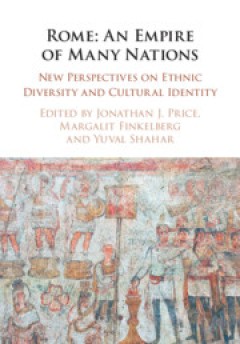
Rome: An Empire of Many Nations New Perspectives on Ethnic Diversity and Cul…
The center of gravity in Roman studies has shifted far from the upper echelons of government and administration in Rome or the Emperor's court to the provinces and the individual. The multi-disciplinary studies presented in this volume reflect the turn in Roman history to the identities of ethnic groups and even single individuals who lived in Rome's vast multinational empire. The purpose is le…
- Edition
- -
- ISBN/ISSN
- 9781009256193
- Collation
- xii, 428 p ; ill
- Series Title
- -
- Call Number
- 937.06 ROM J
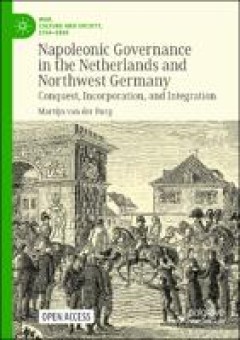
Napoleonic Governance In The Netherlands And Northwest Germany
“Van der Burg presents an innovative transregional study of Napoleonic governance in the often-overlooked northern periphery of the Empire. This book carefully examines the Empire’s administrative structure in the north, focusing on the heterogeneous community of prefects and subprefects as ‘tools of incorporation’, binding the regions to the central state. His rich comparative analysis…
- Edition
- -
- ISBN/ISSN
- 9783030666583
- Collation
- -
- Series Title
- -
- Call Number
- -
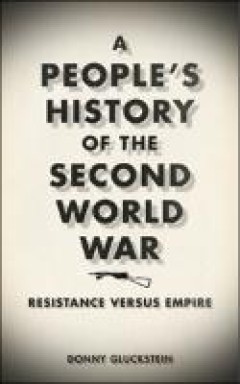
A people's history of the second world war
A People's History of the Second World War unearths the fascinating history of the war as fought 'from below'. Until now, the vast majority of historical accounts have focussed on the conflict between the Allied and Axis powers for imperialist mastery. Donny Gluckstein shows that in fact between 1939 and 1945 two distinct wars were fought – one ‘from above’ and one ‘from below’. Using…
- Edition
- -
- ISBN/ISSN
- 9781849647205
- Collation
- Knowledge Unlatched (KU)
- Series Title
- -
- Call Number
- -
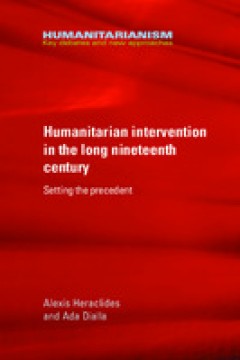
Humanitarian Intervention In The Long Nineteenth Century
This book is a comprehensive presentation of humanitarian intervention in theory and practice during the course of the nineteenth century. Through four case studies, it sheds new light on the international law debate and the political theory on intervention, linking them to ongoing issues, and paying particular attention to the lesser known Russian dimension. The book begins by tracing the gene…
- Edition
- -
- ISBN/ISSN
- 9780719098598
- Collation
- Knowledge Unlatched (KU)
- Series Title
- -
- Call Number
- -
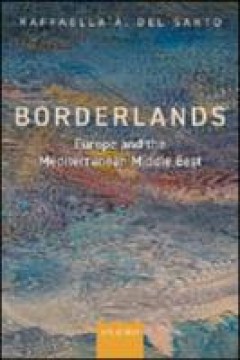
Borderlands : Europe and The Mediterranean Middle East
The book proposes a profound rethink of the complex relationship between Europe—defined here as the European Union and its members—and the states of the Mediterranean Middle East and North Africa (MENA), Europe’s ‘southern neighbours’. These relations are examined through a borderlands prism that conceives of this interaction as one between an empire of sorts that seeks to export its …
- Edition
- -
- ISBN/ISSN
- 9780198833550
- Collation
- 205 p : ill.
- Series Title
- -
- Call Number
- 327.401822
 Computer Science, Information & General Works
Computer Science, Information & General Works  Philosophy & Psychology
Philosophy & Psychology  Religion
Religion  Social Sciences
Social Sciences  Language
Language  Pure Science
Pure Science  Applied Sciences
Applied Sciences  Art & Recreation
Art & Recreation  Literature
Literature  History & Geography
History & Geography